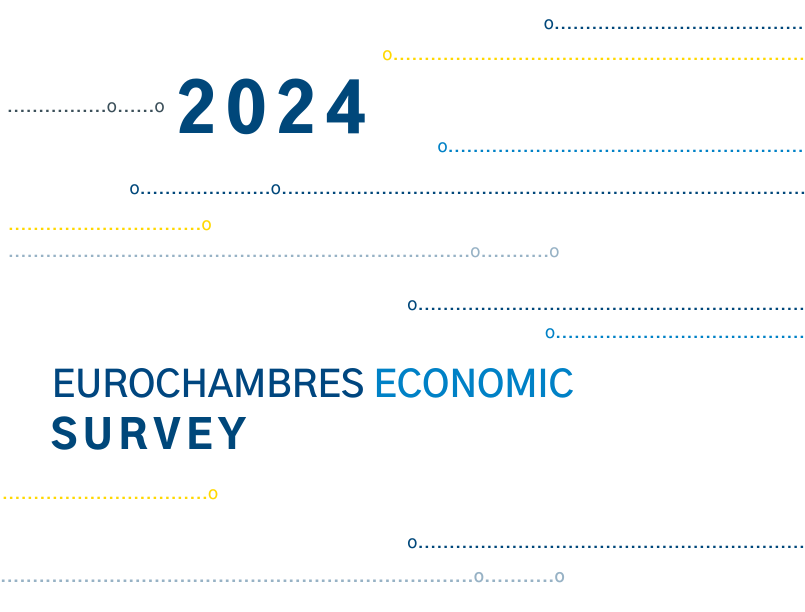Eurochambres Economic Survey 2024: persistent challenges and economic climate set to limit business growth next year
The 31st consecutive edition of the annual Eurochambres Economic Survey shows a slight improvement in the business climate from the historic low of 12 months earlier, according to responses from over 43.000 entrepreneurs. However, persistent challenges such as sourcing of energy and raw materials, labour costs, and shortages in skilled workers undermine expectations and contribute to ongoing uncertainty.
After the sharp decline in business confidence registered last year, the respondents to the Eurochambres Economic Survey 2024 (EES2024) are preparing to face another tough year. According to the feedback gathered by national chambers in 27 countries, European businesses are marginally less pessimistic for the year ahead regarding domestic sales, exports, employment, and investments compared to 12 months ago. The results, however, signal that high consumer prices and low private consumption are taking a heavy toll on domestic sales. At the same time, elevated interest rates are expected to weigh on private investments.
Entrepreneurs identify the sourcing of energy and raw materials as the most pressing challenge for 2024. Rising labour costs and shortages of skilled workforce are also set to remain significant obstacles for businesses next year.
Speaking during today’s EES2024 launch event, the President of Eurochambres, Vladimír Dlouhý: “European businesses have been obliged to hit the brakes for far too long and this is to the detriment of our recovery and competitiveness. EU policymakers must help them change gear from survival to success, instead of limiting their growth through over regulating.”
Key EES2024 policy messages:
- Rigorously address the stockpile and flow of regulatory requirements that stifle EU business competitiveness
- Enhance the security of the supply of critical raw materials for the transition to a low-carbon economy
- Develop and attract talent and skills to drive the twin transition
- Commit to an ambitious programme to tackle remaining barriers to the single market to enable economies of scale, growth and investment
- Align European energy and industrial strategies with climate goals
